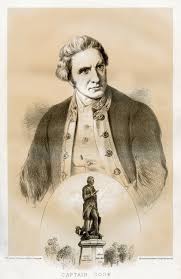
Introduction
James Cook, an 18th-century British explorer, navigator, and cartographer, is a towering figure in the history of exploration. His voyages across the Pacific Ocean not only contributed to the mapping of the world but also had significant impacts on the cultures and nations he encountered. Understanding Cook’s legacy is particularly relevant today, as discussions surrounding colonization, navigation, and cultural exchanges remain pertinent in the modern socio-political landscape.
The Voyages of James Cook
Born on October 27, 1728, in England, Cook initially worked as a sailor and eventually became a skilled navigator, joining the British Royal Navy. His first major voyage, from 1768 to 1771, was to the South Pacific, in which he set out to observe the transit of Venus across the sun. This expedition would later lead him to make contact with New Zealand and the eastern coastline of Australia, vastly improving European knowledge of these regions.
Cook’s subsequent voyages, particularly those from 1772 to 1775 and 1776 to 1779, further expanded the map of the Pacific, contributing to scientific knowledge, resources, and establishing British claims over new territories. Sadly, his last voyage ended tragically in Hawaii, where he was killed in 1779 during a conflict with Native Hawaiians. His adventures and the maps produced during his voyages are still studied and revered.
Impact and Legacy
Cook’s contributions to navigation and science are significant; he meticulously charted areas previously unknown to Europeans and engaged with indigenous peoples, leaving a complex legacy. While his expeditions often opened doors to trade and interaction between cultures, they also heralded periods of colonization and change that affected the local populations profoundly.
Today, the impacts of Cook’s explorations are seen both positively and negatively, with many advocating for a balanced view that acknowledges both his navigational achievements and the consequences of colonialism that followed. Efforts are ongoing to re-evaluate historical narratives surrounding figures like Cook, emphasizing indigenous perspectives and experiences.
Conclusion
Examining the life and legacy of James Cook provides valuable insights into the era of exploration and its lasting impact on today’s world. His navigational feats continue to influence the fields of geography and cartography, while the discussions surrounding colonialism remind us of the importance of acknowledging and respecting the histories and cultures of the peoples affected by such exploration. As we move forward, reflecting on Cook’s legacy encourages a richer, more comprehensive understanding of history and its implications for our current global landscape.



